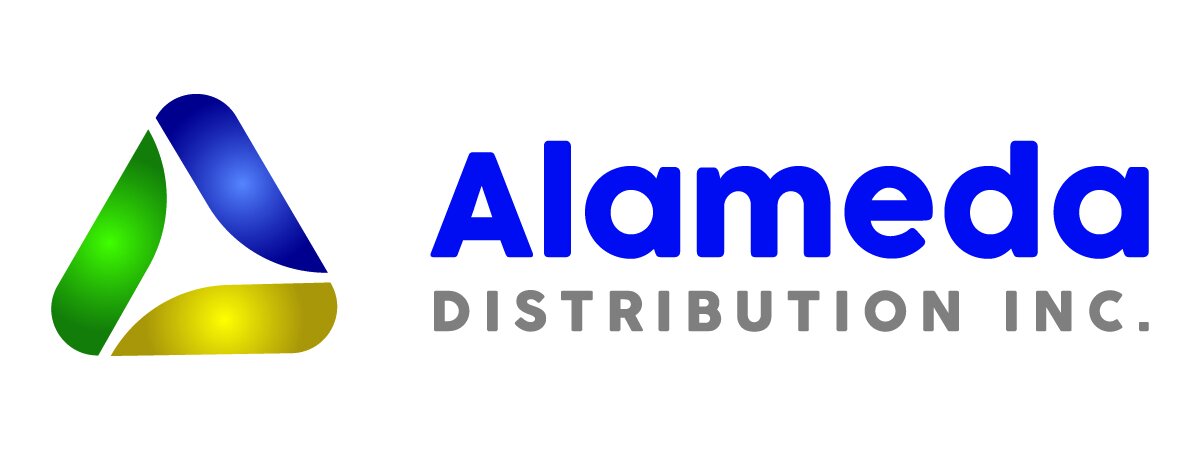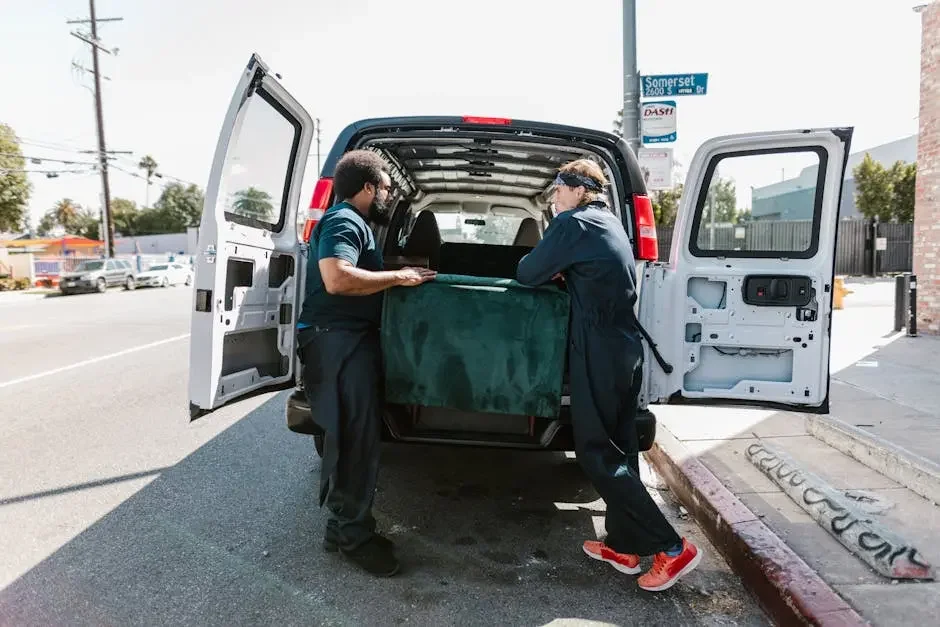8 Innovative Los Angeles Drayage Solutions for Modern Businesses
In the fast-paced world of modern logistics, finding innovative drayage solutions is key to staying ahead. Los Angeles, as a pivotal hub, offers diverse opportunities to streamline operations and reduce costs. Here's a look at some cutting-edge drayage solutions that are transforming the landscape for businesses in Los Angeles.
1. Leveraging Technology for Efficiency
Technology continues to revolutionize the drayage sector in Los Angeles. From real-time tracking systems to automated scheduling, businesses can streamline operations and improve service delivery. One particularly effective technology is the integration of TMS (Transportation Management Systems). TMS offers not only ease in tracking but also enables the optimization of logistics operations by organizing and automating the scheduling process. This means businesses can effectively manage their supply chain processes and respond promptly to any challenges that arise. The use of these systems can enable companies to sustain and enhance customer satisfaction, thereby increasing their overall competitiveness.
Moreover, the incorporation of Internet of Things (IoT) solutions into drayage operations can further boost efficiency. IoT devices facilitate the collection of abundant data, assisting in predictive maintenance and reducing unforeseen breakdowns that may disrupt operations. With real-time data analytics, businesses can also anticipate peak times and prepare accordingly, ensuring that resources are optimally allocated. These technological advances make it possible for businesses to be proactive rather than reactive, which is crucial in maintaining a seamless operation in the bustling logistics environment of Los Angeles.
2. The Rise of Electric Drayage Trucks
Electric drayage trucks are gaining traction as a sustainable alternative to traditional diesel-powered ones. These eco-friendly vehicles help reduce emissions and operation costs in the long run. Los Angeles, being a leader in embracing green technology, supports this transition through various incentives and initiatives aimed at reducing the carbon footprint of logistics operations. Companies like Tesla and Volvo are investing heavily in the development of electric trucks, which promise to revolutionize the industry by offering not only lower fuel costs but also lower maintenance costs due to fewer moving parts.
Moreover, these electric trucks contribute significantly to reducing noise pollution—a prominent concern, especially in urban areas like Los Angeles. The quiet operation of electric vehicles enhances the working environment and can lead to better health outcomes for employees and local communities. As more businesses adopt electric drayage trucks, there's a growing demand for infrastructure such as charging stations, which the city is actively working to improve. This shift not only addresses environmental concerns but also ushers in a new era of logistics that aligns with the sustainability goals of modern enterprises.
3. Optimizing Routes with Advanced Analytics
Route optimization through advanced analytics allows businesses to cut down on fuel consumption and delivery times, ensuring goods reach their destinations swiftly and efficiently. These analytics come from evaluating traffic patterns, weather conditions, and other external factors that can affect delivery schedules. By employing cutting-edge software solutions, businesses can ensure their routes are not just shorter but also safer and more reliable. In a city as vast and complex as Los Angeles, the choice of an optimal route can be the difference between timely deliveries and costly delays.
Furthermore, machine learning algorithms play a critical role in these analytics by honing predictive capabilities that refine route planning processes continuously. Analytics platforms can learn from historical data to suggest improved routes that account for common bottlenecks. This enables logistics companies to enhance their service quality by promising more accurate delivery windows. Such improvements can drastically boost customer satisfaction levels and, ultimately, brand reputation in the competitive Los Angeles market.
4. Collaborative Partnerships with 3PL Providers
Partnering with third-party logistics providers (3PLs) can offer businesses scalable drayage solutions and access to a broader network of transportation resources. These partnerships allow companies to tap into established networks and expertise, enhancing logistical efficiency and flexibility. In the face of fluctuating demand, 3PLs provide the agility needed to scale operations up or down without significant investment in additional resources. This capability is crucial in the dynamic business environment of Los Angeles, where market demands can change rapidly.
3PLs also bring with them technological sophistication, offering platforms that integrate various service aspects—from warehousing to transportation—under one umbrella. This not only lowers operational costs but also simplifies the logistics management process for businesses. Companies can leverage these partnerships to focus on their core operations while 3PLs manage the logistics intricacies. With an array of services tailored to cater to specific needs, 3PLs serve as an invaluable partner for businesses aiming to cement their position in the Los Angeles logistics landscape.
For more information on services that include robust logistical support, check out the comprehensive solutions offered to simplify your logistics and transportation needs.
5. Implementing Green Logistics Practices
Green logistics practices are becoming essential in the drayage industry. Businesses are focusing on reducing carbon footprints through efficient fuel use and eco-friendly methodologies. Innovations such as aerodynamic vehicle designs and using sustainable packaging solutions have been instrumental in reducing waste and promoting efficiency. Such initiatives not only help in conserving the environment but also reflect positively on corporate social responsibility, enhancing a company’s image in the eyes of environmentally-conscious consumers.
Moreover, energy-efficient warehouses powered by renewable energy sources form another cornerstone of green logistics. These facilities minimize energy use and enhance operational sustainability. By investing in LEED-certified buildings and utilizing solar panels, businesses can drastically cut down on energy costs while setting a precedence for sustainability that aligns with the ethos of Los Angeles's forward-thinking community. Implementing these practices signifies a commitment to sustainable growth, a vision increasingly favored by clients and investors alike.
6. Customizable Drayage Software Solutions
Customizable software solutions allow businesses to tailor drayage operations to their specific needs, improving efficiency and responsiveness to market demands. This customization means businesses can adapt their technology stack to align with their unique processes and objectives. Integrated platforms offer features such as real-time analytics, robust reporting, and flexible scheduling, providing thorough insights and operational control. Such software ensures that regardless of seasonal variances or sudden demand spikes, companies can maintain a high level of service quality.
Additionally, these software solutions promote transparency across the supply chain by integrating various modules like inventory management, shipment tracking, and customer service onto a single interface. This seamless connectivity aids in quick decision-making processes and enhances communication among stakeholders. As a result, logistics operations become more resilient, agile, and customer-centric. Customized software thus represents a crucial tool for businesses looking to thrive in the competitive logistics sector of Los Angeles.
7. Embracing Intermodal Transportation
Intermodal transportation offers a flexible, cost-effective solution that combines different modes of transport for efficiently moving goods across long distances. This method leverages the strengths of each transportation mode—be it rail, truck, or sea—to optimize logistics operations. By allowing freight to seamlessly transfer across these modes without physical handling of the cargo, intermodal transportation reduces costs and transit times significantly while minimizing the risk of damage. Such an approach is especially beneficial in a sprawling metropolis like Los Angeles, where interconnectivity between different transport infrastructures plays a vital role.
The strategic geographical positioning of Los Angeles, with its proximity to the ports and vast rail networks, makes it an ideal hub for intermodal transport solutions. Implementing intermodal transportation strategies can help businesses achieve sustainability targets by reducing their carbon footprint as rail transport is significantly more fuel-efficient compared to road transport. This alignment with eco-friendly logistics is crucial in today’s market, where clients favor companies that practice environmental responsibility. By integrating intermodal solutions, businesses in Los Angeles can amplify their competitive edge and ensure a more sustainable approach to meeting customer demand.
8. Adopting Blockchain for Transparency
Blockchain technology is being adopted to ensure transparency and security in drayage operations, enabling businesses to track shipments in real-time and enhance trust among partners. Blockchain’s decentralized ledger mechanism eliminates errors and ensures the authenticity of transaction records, which is essential in logistics management. This increased transparency builds confidence among stakeholders, as every transaction can be verified and traced back to its origin.
Moreover, blockchain technology helps in streamlining administrative processes by reducing paperwork and minimizing the chances of forgery. Smart contracts automate contractual agreements, ensuring compliance with terms and conditions without manual intervention. Such innovations facilitate a smoother flow of goods and enhance operational efficiency by speeding up transaction times. As businesses continue to acknowledge these benefits, blockchain adoption becomes a hallmark of innovation and excellence in Los Angeles's vibrant logistics industry. Employing blockchain technologies signifies a forward-thinking approach that emphasizes security and accountability in all drayage operations.

